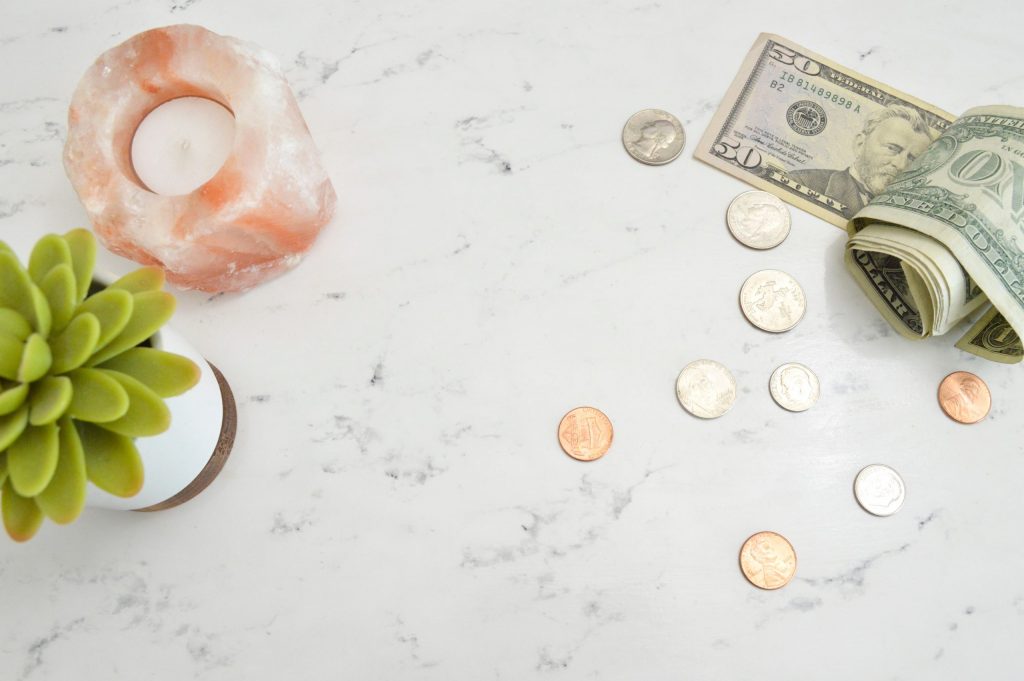by Marie Bruce

As a counsellor, I have helped people from all walks of life, with all sorts of issues, but regardless of why people have originally come to me for counselling, one topic always crops up time and again – money.
After years of austerity, stagnant wages and rising living costs, people are feeling the pinch. Personal debt is a big issue for many, with consumer debt being the biggest hurdle as people turn to their credit cards and catalogues to fund their summer holidays or Christmas presents for their children. But with debt comes anxiety, stress, sleepless nights and financial fear. We might not send debtors to prison any more like they did in Victorian times, but these days the debtors prison is very much in the mind, as it leads people to feel trapped and out of control.
The main advice I give to my clients is that debt becomes a habit if you let it. There comes a point when purchasing on credit is second nature because you have done it so often that debt becomes your first response. This type of spending may give a brief ‘shopping buzz’ but in the long term it is unsustainable and irresponsible.
If your spending is out of control, the first thing to do is admit that it has become a problem. Yes, it’s hard to work all week and have nothing to show for it, but if the only alternative is treating yourself on your credit card, then you need to think twice before completing the purchase, because the ‘treat’ is adding to the overall debt and therefore creates an increase in the financial pressure you're already under. Just because it’s easy to shop online at midnight doesn’t mean you should be doing it!
Being in control of your life means that you pay off your debts and pay all your bills on time – and if this means that you have to tighten your belt in some areas then that is what you must do, until you are on top of your financial situation.
Denial and fantasy are common among debtors. I had a conversation once with a woman who was complaining about her consumer debts and the worry it caused her, but at the same time she was still putting in catalogue orders and spending £5 - £10 a week on the Lotto and scratchcards because she’d convinced herself that she would one day win the jackpot, ending all her money troubles. This kind of thinking is sadly not uncommon. People in debt are often waiting for someone or something to come along and rescue them from their financial mess. But here’s the truth:
No-one is coming. It’s down to you.
When I explained to this woman that there was little point in complaining about her financial stress, when she was still very much in the habit of accumulating debt and spending money she couldn’t afford on the pipedream of winning the lotto, she got very huffy with me. People really don’t like to hear the truth when they have been clinging onto a lie for so long and the lies we tell ourselves are often the hardest to see through.
If someone has spent a lifetime existing entirely on benefits and accumulating debts, their finances are not going to become healthy overnight. The sad fact is that many people in this situation are likely to die in debt, if their debts are so high that they cannot pay them off in a few years, or if they are unable to go out to work to earn more money. That is the reality of the poverty trap.
So what do you do if you have debts and are struggling to make ends meet. First of all, forgive yourself. Everyone makes financial mistakes from time to time. Next be realistic. Can you afford to pay off your debt on one go? If the answer is no, then you need to work out exactly how much you owe and to whom, then make a plan to pay it off in instalments. If you have several debts, pay extra on the smallest debt while making minimum payments on the rest. Once the smallest debt is paid off, take the money you normally pay on that each month and add it to the minimum payment of the next smallest debt, until that too is paid off. Continue in this way until you are paying off the largest debt. As the money trickles down from debt to debt, it snowballs until you are paying off chunks of debt each month. As each of the smaller debts is cleared, it helps you to feel more in control of your finances.
If your situation is so bad that you cannot even meet the minimum payments, then you need to start phoning your creditors to let them know. They will usually make some kind of reduced payment arrangement and it is vital that you keep up with these payments, because if you are late or miss one they can demand the whole debt is paid off in one go, or send in the bailiffs. So always ensure you meet your repayment plan obligations.
Finally, it is essential that you stop accumulating debt. Throw away and cancel the catalogues, put the credit card out of reach or cut it up, refuse a higher credit limit if it is offered to you and pay cash for your essential purchases so you know how much you are spending. Aim to know exactly how much money you need to live on each month, including credit and bill payments. Anything left over can be used to start saving, to pay extra on debt or to allow yourself a little treat that you can afford in cash. Getting out of debt takes longer than getting into it, but it is possible, providing you are willing to break the debt habit and can live within your means. If you need additional help, or want free debt advice see
www.stepchange.org
Financial struggles are part of modern life. Be kind to yourself and take the steps necessary to ease the burden of debt. May fortune favour you. Until next month,
Serene Blessings
Marie Bruce x
 Find out more:
Find out more:
Marie Bruce Dip. T.C. MBACP is a qualified psychotherapist, Cruse Bereavement Counsellor and best-selling self-help author. She specialises in grief and loss counselling, PTSD and military counselling, and life coaching.
In this monthly column, Marie offers simple tools used by therapists to help clients and readers improve their mental well-being.
Marie’s books are available on Amazon UK.


 Find out more:
Find out more:















